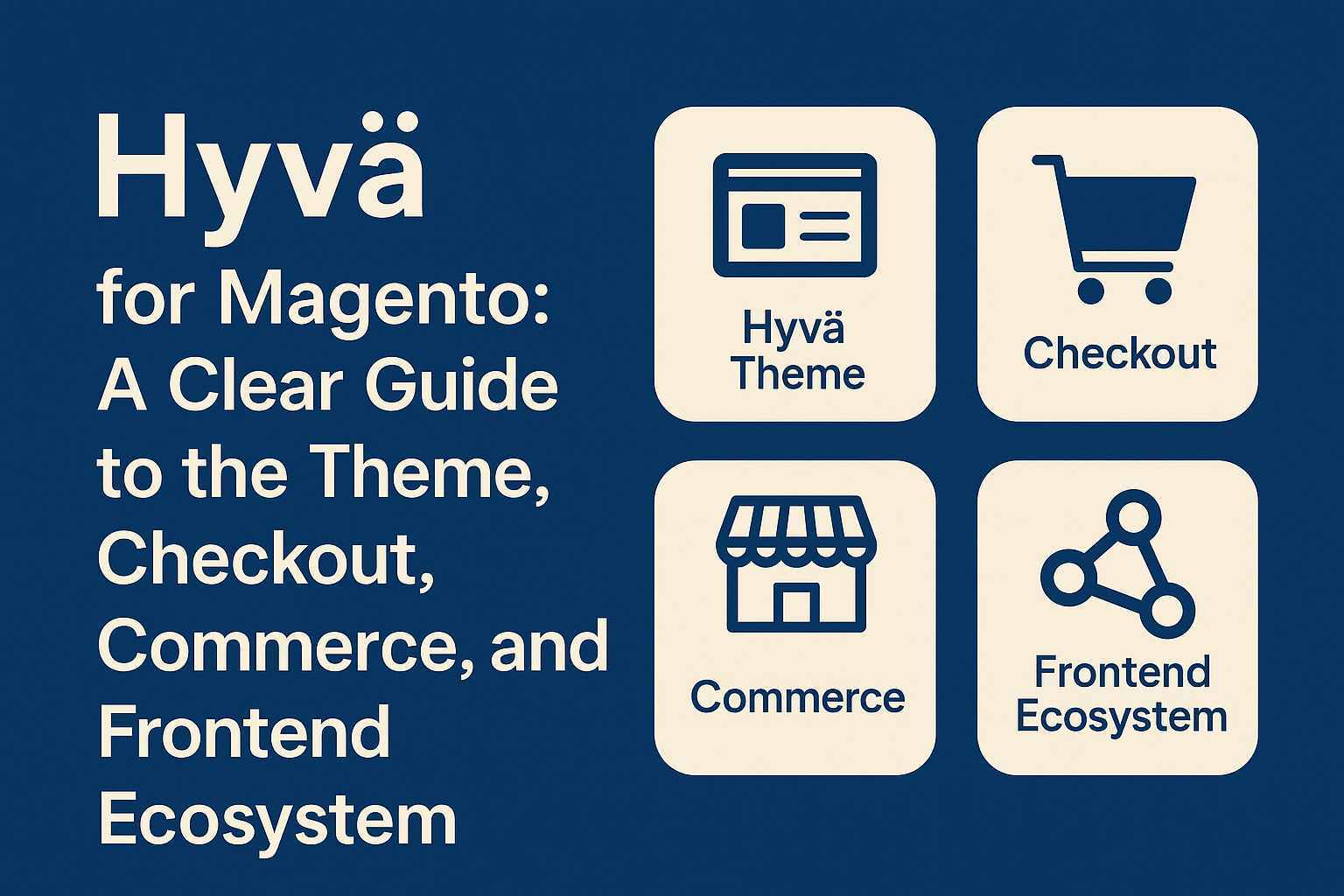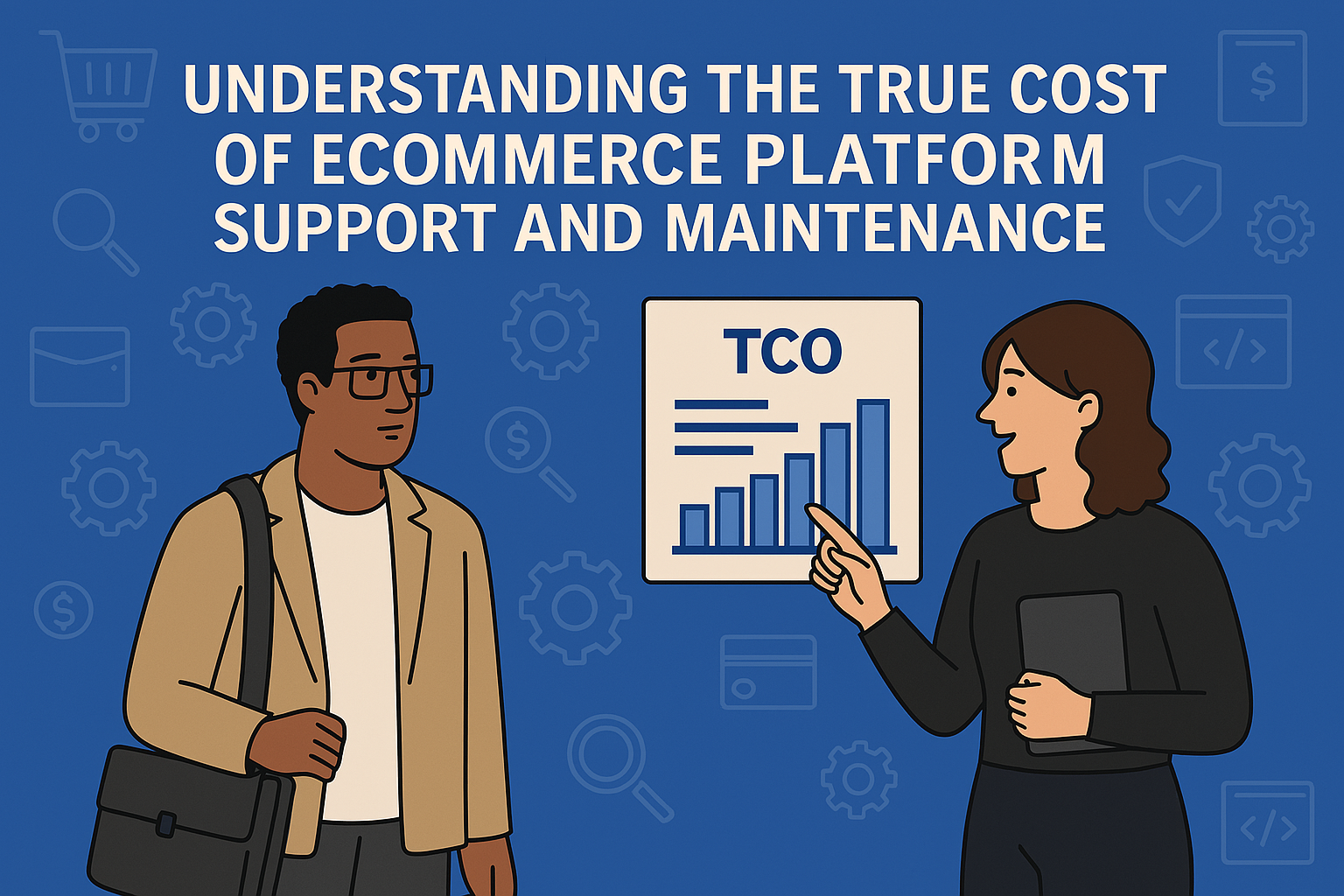Hyvä for Magento: A Clear Guide to the Theme, Checkout, Commerce, and Frontend Ecosystem
A clear guide to the Hyvä ecosystem for Magento. Learn how Hyvä Theme, Checkout, and Commerce work, and what merchants gain from migrating to Hyvä.

Manufacturers face unique challenges when transitioning to eCommerce. Their needs often extend beyond standard online selling, requiring platforms with robust ERP integrations, dynamic pricing structures, advanced B2B features, and seamless scalability. Choosing the right platform is critical to addressing these requirements and achieving long-term success.
So, we set out to analyze five leading platforms — Oracle NetSuite, Salesforce Commerce Cloud, Adobe Commerce, Magento Open Source, and Shopify Plus — and explore the specific features that make them suitable for manufacturing eCommerce.
Oracle NetSuite is an all-in-one platform that integrates eCommerce, ERP, CRM, and supply chain management. Its unified system is particularly beneficial for manufacturers looking to streamline operations while managing the complexities of multi-channel selling.
Ideal For: Large manufacturers seeking deep integration between their eCommerce and ERP systems to streamline complex workflows.
Salesforce Commerce Cloud excels in its ability to deliver personalized experiences and manage enterprise-scale operations. Its rich ecosystem and AI-powered features make it a strong choice for manufacturers looking to enhance customer engagement.
Ideal For: Manufacturers prioritizing customer-centric strategies and scalable, enterprise-level infrastructure.
Adobe Commerce is a highly flexible and customizable platform with advanced B2B functionality. Its ability to handle complex manufacturing workflows makes it a popular choice for mid-sized to large manufacturers.
Ideal For: Manufacturers with intricate product offerings and a need for extensive customization options.
Magento Open Source is a flexible and budget-friendly alternative to Adobe Commerce. While it requires more technical expertise, it provides a high degree of customization, making it a viable option for small to mid-sized manufacturers.
Ideal For: Cost-conscious manufacturers with an in-house technical team or access to skilled developers.
Learn More: Adobe Commerce vs. Magento Open Source: What’s the Difference?
Shopify Plus offers simplicity, speed, and enterprise-level features, making it an excellent option for manufacturers seeking a fast and scalable eCommerce solution.
Ideal For: Manufacturers looking for a straightforward, fast-to-launch platform with enterprise-level capabilities.
Selecting the best eCommerce platform for your manufacturing business requires a thorough understanding of your unique operational needs, growth objectives, and technical capacity. With a variety of platforms available, the decision-making process can feel overwhelming. Here are the key factors to consider when evaluating your options:
Manufacturers often operate across multiple sales channels, including B2B, B2C, and wholesale. Identify the primary focus of your eCommerce strategy. For example:
Seamless integration with existing systems like ERP, CRM, and supply chain management is critical for operational efficiency. Platforms like Oracle NetSuite and Salesforce Commerce Cloud provide native integrations, while others may require third-party solutions. Evaluate your current tech stack to determine which platform can connect most effectively.
Manufacturers with unique workflows or specialized product offerings require a platform that supports extensive customization. Adobe Commerce and Magento Open Source shine in this area, enabling businesses to tailor features, workflows, and user interfaces to their specific needs.
Conversely, if your business requires a quicker implementation with minimal customization, Shopify Plus may be a better choice.
As your business grows, your eCommerce platform should be able to accommodate increased traffic, larger product catalogs, and expanding operations. Platforms like Salesforce Commerce Cloud and Adobe Commerce are designed to scale with enterprise-level requirements, making them ideal for businesses with ambitious growth plans.
Read More: How To Balance eCommerce Scalability & Performance
A seamless, intuitive shopping experience is essential for both B2B and B2C customers. Platforms that offer built-in tools for personalized experiences, such as Salesforce Commerce Cloud’s Einstein AI, can help improve engagement and conversion rates.
Budget is a major factor in choosing an eCommerce platform.
Consider the level of support and community resources available for each platform. Platforms like Shopify Plus and Oracle NetSuite offer extensive customer support, while Magento Open Source relies on a vibrant developer community for technical assistance.
Before committing to a platform, conduct a pilot project to evaluate how well it integrates with your existing systems and supports your workflows. Many platforms offer demos or trial periods to help you make an informed decision.
By systematically evaluating these factors, you can identify the platform that aligns best with your manufacturing business’s immediate needs and long-term goals. Making the right choice will enable you to optimize operations, enhance customer satisfaction, and drive sustainable growth.
The best eCommerce platform for your manufacturing business depends on your specific needs. Oracle NetSuite and Salesforce Commerce Cloud stand out for their seamless integration and scalability, while Adobe Commerce offers unparalleled customization for complex manufacturing workflows. Magento Open Source is a cost-effective choice for those with development expertise, and Shopify Plus excels in simplicity and speed. Evaluate your operational goals, technical capacity, and budget to select the platform that will drive your eCommerce success.
Shopify Plus is ideal for manufacturers with limited technical resources due to its user-friendly interface and extensive automation tools, reducing the need for manual management.
Platforms like Oracle NetSuite and Shopify Plus offer multi-currency and multi-language support, while Salesforce Commerce Cloud and Adobe Commerce provide tools for managing global tax compliance and localized storefronts.
Adobe Commerce and Salesforce Commerce Cloud are the top choices for robust B2B features, including custom catalogs, contract pricing, and bulk ordering capabilities tailored to business buyers.

A clear guide to the Hyvä ecosystem for Magento. Learn how Hyvä Theme, Checkout, and Commerce work, and what merchants gain from migrating to Hyvä.

eCommerce platform costs go beyond licensing and launch. Support, maintenance, and long-term scalability impact total cost of ownership.

We compare Magento, Adobe Commerce, BigCommerce, and Shopify in depth, examining how each caters to automotive eCommerce merchants.